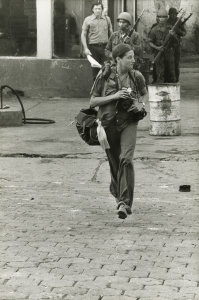Book adaptations have become a significant trend in the entertainment industry, providing audiences with cinematic versions of beloved novels. As fans flock to theaters to see their favorite narratives reimagined, discussions often arise about whether these film adaptations successfully capture the essence of their literary origins. The best book-to-film adaptations can breathe new life into stories, offering fresh insights while staying true to the original text. In this ever-evolving landscape, we also see Oscar-winning adaptations that not only entertain but also provoke thought and generate buzz during awards season. From classic tales to modern masterpieces, the world of novels adapted into movies continues to enchant both readers and cinephiles alike, prompting the ongoing debate about how faithfully these adaptations portray their source material.
Literary adaptations, often referred to as film renditions of written works, have carved out a niche within the movie industry, capturing the imaginations of viewers worldwide. These adaptations transform popular novels and stories into visual spectacles, making them accessible to broader audiences who may not have experienced the original text. From the charming to the thought-provoking, top literary adaptations often invite discussions about the nuances lost or gained during the transition from page to screen. Whether it’s a critically acclaimed drama or a light-hearted romance, the realm of film adaptations showcases the dynamic relationship between literature and cinema. As we delve deeper into this topic, we will explore various adaptations that not only resonate with fans but also bring new perspectives to timeless narratives.
The Art of Book Adaptations
Book adaptations have long been a favored method for filmmakers to tap into successful narratives that already have a built-in audience. This process often proves fruitful, allowing cinematic interpretations to enhance or even redefine the original stories in creative ways. Some of the most compelling film adaptations manage to transcend their source material, transforming novels into unforgettable visual experiences that resonate deeply with audiences. As films like ‘Conclave’ and ‘L.A. Confidential’ demonstrate, when done right, adaptations can highlight the nuances of character development and plot while offering a fresh perspective that readers may not have considered.
However, the challenge remains in balancing fidelity to the source material with the need to tell a story that captivates viewers in a different medium. Many argue that while book adaptations can introduce audiences to literary classics, the essence of a novel’s deeper themes or character intricacies can be lost in translation. For instance, in ‘Misery,’ while the thrilling aspects of the plot were well captured in the film, some thematic richness about writing was inevitably sacrificed. Thus, the ongoing debate about whether a film can ever truly be as good as the book continues to engage audiences and critics alike.
Best Book-to-Film Adaptations Worth Watching
When discussing the best book-to-film adaptations, several titles consistently rise to the top. These films not only draw from strong narratives but also benefit from stellar performances and direction, making them both engaging and critically acclaimed works. For example, Stephen King’s ‘Misery’ is lauded not only for its gripping plot involving isolation and obsession but also for Kathy Bates’ Oscar-winning performance that brought Annie Wilkes to life. Similarly, ‘L.A. Confidential’ successfully transported readers into the gritty underworld of 1950s Los Angeles, while also gaining accolades for its richly drawn characters and complex narrative structure.
Another notable mention is ‘American Psycho,’ which, despite being a divisive adaptation, crafted a compelling commentary on consumerism and identity through its dark humor and stylistic choices. These adaptations showcase the extraordinary potential of translating novels into film, where filmmakers interpret and reimagine beloved stories for a modern audience. With awards season continually recognizing such efforts, it’s clear that the best literary adaptations not only succeed in capturing the essence of their source material but also expand upon it, enriching the viewer’s experience.
The Impact of Oscar-Winning Adaptations
Oscar-winning adaptations bring significant attention to both the original literary works and the cinematic interpretations. The prestige associated with winning an Academy Award lends credibility to the filmmakers and encourages new audiences to explore the source material. An excellent instance of this is ‘The English Patient,’ whose success at the Oscars rekindled interest in the novel by Michael Ondaatje. This not only elevated the book’s status but also prompted discussions about the differences between the film and the literary narrative, enhancing the understanding of both mediums.
Furthermore, the prominence of adaptations like ‘The Revenant’ and ‘Room’ among Oscars nominees illustrates how filmmakers can effectively distill complex storylines that originally thrived on the written page into compelling visual narratives. These adaptations showcase how the emotional depth and complexity of a novel can be preserved while introducing new layers through powerful performances and visual storytelling techniques. However, each success at the Oscars reignites the conversation on the merits of adaptations—prompting viewers to reflect on the relationship between the written word and its visual counterpart.
Exploring Novels Adapted into Movies
Many novels have paved the way for breathtaking movies, each bringing unique worlds and characters to life. As audiences become more familiar with the stories through their cinematic adaptations, they often seek out the books as well. This symbiotic relationship between literature and cinema has given rise to a thriving trend where popular novels are frequently translated into films. Classics such as ‘Pride and Prejudice’ continue to be reimagined through multiple adaptations, showcasing the timelessness of the themes and character struggles that resonate across generations.
On the other hand, novel adaptations like ‘The Great Gatsby’ remind audiences of the changing perspectives over time as different filmmakers bring their interpretations of the text to the screen. Each portrayal underscores the novel’s nuanced themes, offering viewers an opportunity to see how various interpretations can shift audience perceptions of character motivations and societal critiques originally outlined in the book. These adaptations not only entertain but also spark dialogues about the cultural contexts of the written word, urging newfound appreciation for the literary arts.
The Best Literary Adaptations of All Time
Studying the best literary adaptations reveals a fascinating landscape of storytelling where ideas are transformed across varying media. Classics like ‘To Kill a Mockingbird’ and ‘The Shawshank Redemption’ continue to emerge as significant pieces of cinematic art revered for their fidelity to the emotional truths embedded in their source novels. They effectively capture the essence of their respective narratives, highlighting the struggles and triumphs of the characters with a cinematographic touch that often enhances the original themes.
Moreover, contemporary adaptations like ‘Little Women’ and ‘The Handmaid’s Tale’ showcase the versatility of literary sources, proving that literature can inspire varied interpretations that resonate with current societal themes. Audiences are increasingly appreciating how these cinematic versions can open discussions around longstanding issues such as gender inequality and personal autonomy. These adaptations not only celebrate the original works but also reinterpret them, thus solidifying their place in both literature and film history.
What Makes a Great Film Adaptation?
A great film adaptation is characterized by a filmmaker’s understanding of the original material and the ability to distill its essence into a new form. Critical elements that contribute to a successful adaptation include strong character development, fidelity to the plot’s overarching themes, and the ability to evoke the same emotional responses that readers experience with the book. For instance, when adaptations take creative liberties, they must be strategically placed to enhance the narrative rather than detract from it, as seen in successful films like ‘The Godfather,’ which remains true to the spirit of Mario Puzo’s novel while delivering a powerful cinematic experience.
Moreover, the director’s vision, screenwriting, casting, and production all play pivotal roles in shaping how the story translates from page to screen. This collaboration is essential for producing adaptations that feel both faithful to the source material while still offering a new lens through which to view beloved tales. By crafting cinematic narratives that evoke the original literary themes in fresh ways, filmmakers can create adaptations that not only satisfy devoted fans but also capture the interest of new audiences.
The Challenges of Translating Prose to Screen
Transforming prose into film presents a myriad of challenges, not just in capturing the narrative, but in articulating the author’s voice and style. When adapting a novel, filmmakers must choose what to emphasize, condense, or omit entirely to fit within the constraints of screen time. For example, many internal monologues found in literature may be challenging to convey visually, requiring creative alternatives such as voiceovers or visual cues. In the adaptation of ‘American Psycho,’ the filmmakers navigated this issue by boldly infusing dark humor that reshaped the story’s tone for viewers, showcasing how deviation from the source can yield interesting results.
Additionally, the pacing of a film adaption is inherently different from a book, where the reader has the luxury of savoring each scene at their own pace. A film must maintain a brisk tempo to sustain audience engagement, often resulting in the excision of significant plot points or character development present in the novel. This can provoke mixed reactions from the audience, as seen in adaptations that fans feel compromise the integrity of the original narrative by prioritizing cinematic excitement over depth. The significance of this challenge highlights the delicate balance filmmakers must achieve when bringing novels to the silver screen.
The Role of Creative Liberties in Adaptations
Creative liberties play a pivotal role in the realm of literary adaptations. More often than not, filmmakers need to tweak original narratives to better suit the cinematic medium, discover new thematic angles, or fit the expectations of modern audiences. For example, some adaptations may choose to alter characters’ arcs or endings to provide a more compelling resolution, as observed with Joyce Chopra’s adaptation of Joyce Carol Oates’ short story ‘Where Are You Going, Where Have You Been?’ In doing so, the film not only deepens the character’s experiences but also elicits new emotional responses from the audience.
While creative liberties can sometimes evoke discontent among book purists, they can also rejuvenate interest in the source material, compelling readers to revisit the original work to compare differences. Adaptations like these demonstrate how innovative storytelling can lead to rich reinterpretations, potentially sparking broader discussions about the themes present in both formats. Ultimately, while these changes must serve the narrative and enhance the film’s impact, they can contribute significantly to the dialogue surrounding how stories are experienced and understood across various forms of media.
Frequently Asked Questions
What are some of the best book-to-film adaptations recently released?
Recent years have seen a number of exceptional book-to-film adaptations, with titles such as ‘Conclave’ and ‘Nickel Boys’ gaining traction during award seasons, highlighting their compelling narratives and faithful representations of the source material. Oscar-winning adaptations like these demonstrate how literature can successfully transition to the silver screen.
Which novels adapted into movies have won Oscars?
Numerous novels adapted into movies have garnered Oscar recognition, showcasing the intersection of literature and film. Examples include ‘Misery,’ which won Kathy Bates an Oscar for Best Actress, and ‘L.A. Confidential,’ which received a Best Picture nomination, cementing its place among the best adaptations of literary works.
What makes a great literary adaptation for the screen?
A great book adaptation typically balances faithfulness to the source material with creative interpretation. This can mean maintaining key themes and character depth while adjusting plot elements for cinematic storytelling. Films like ‘Once Upon a Time in America’ exemplify how creative direction can enhance the original narrative.
Are there any famous film adaptations that diverge significantly from their source novels?
Yes, many famous film adaptations take significant creative liberties. For instance, Mary Harron’s adaptation of ‘American Psycho’ alters the tone and injects humor into Bret Easton Ellis’ dark narrative, allowing the film to stand out and offer a fresh perspective on the original material.
Why do fans often say ‘the book was better’ than its film adaptation?
Fans frequently claim ‘the book was better’ due to the depth and nuance that literature can provide, which is sometimes lost in film adaptations. The complexity of characters and plots in novels like ‘Jack Reacher’ is often simplified in film, leading to this common sentiment among readers.
What are some characteristics of successful top literary adaptations?
Successful top literary adaptations often retain the core themes of their source materials while translating them into visually engaging narratives. They also focus on strong character development and the cinematic portrayal of essential plot points, ensuring they resonate with both readers and new audiences.
What are some common misconceptions about book adaptations in film?
One common misconception is that if a book is successful, its film adaptation will automatically succeed too. However, translating a novel to film often requires reimagining elements to fit the cinematic format, which can sometimes alter the original intent and lead to mixed receptions among fans.
How do filmmakers choose which novels to adapt into movies?
Filmmakers often choose novels to adapt based on the story’s strong narrative structure, character development, and emotional depth. The potential for visual storytelling and audience interest, coupled with the literary work’s popularity or critical acclaim, typically guides this decision.
What impact do Oscars have on the popularity of book adaptations?
Oscars can significantly boost the popularity of book adaptations, as nominations and wins often attract more viewers to both the films and their source material. Winning awards can lead to renewed interest in the novels, encouraging a new generation to explore these literary works.
Are there any adaptations that critics believe improved upon the source material?
Yes, some adaptations are viewed as improvements over the original novels. For example, Joyce Chopra’s film ‘Smooth Talk’ is often praised for deepening character development and altering an otherwise fatalistic ending to offer a more nuanced perspective, thus enhancing the original story.
| Adaptation Title | Original Author | Key Adaptation Points | Notable Differences |
|---|---|---|---|
| Misery | Stephen King | Explores themes of writing and fame. | Loss of the deeper literary insights from the novel. |
| L.A. Confidential | James Ellroy | Gritty homage to 1950s LA and the film industry. | Significantly edits the plot but captures essence and characterization. |
| Jack Reacher Series | Lee Child | Focuses on a wandering ex-military policeman. | Melodramatic structure stands out more clearly on screen. |
| The Hoods | Harry Grey | Semi-autobiographical account of Jewish gang life. | Film adaptation emphasizes operatic visuals and music over dialogue. |
| American Psycho | Bret Easton Ellis | Dark humor intertwined with social critique. | Transformation into a lively adaptation; novel’s tone differs. |
| Where Are You Going, Where Have You Been? | Joyce Carol Oates | Explores adolescent angst and confrontation. | Film provides a deeper character study and alters the ending. |
Summary
Book adaptations play a significant role in bringing literary works to a wider audience through the magic of film. While the famous phrase “the book was better” often resonates within these discussions, several adaptations surpass their source material by offering unique interpretations and deeper narratives. The adaptations of beloved works, such as Stephen King’s “Misery” and James Ellroy’s “L.A. Confidential,” showcase how filmmakers can maintain the essence of the original while skillfully modifying elements to enhance the story for a new medium. Overall, well-crafted movies have the potential to breathe new life into books, helping audiences to explore themes they might not have otherwise considered.




